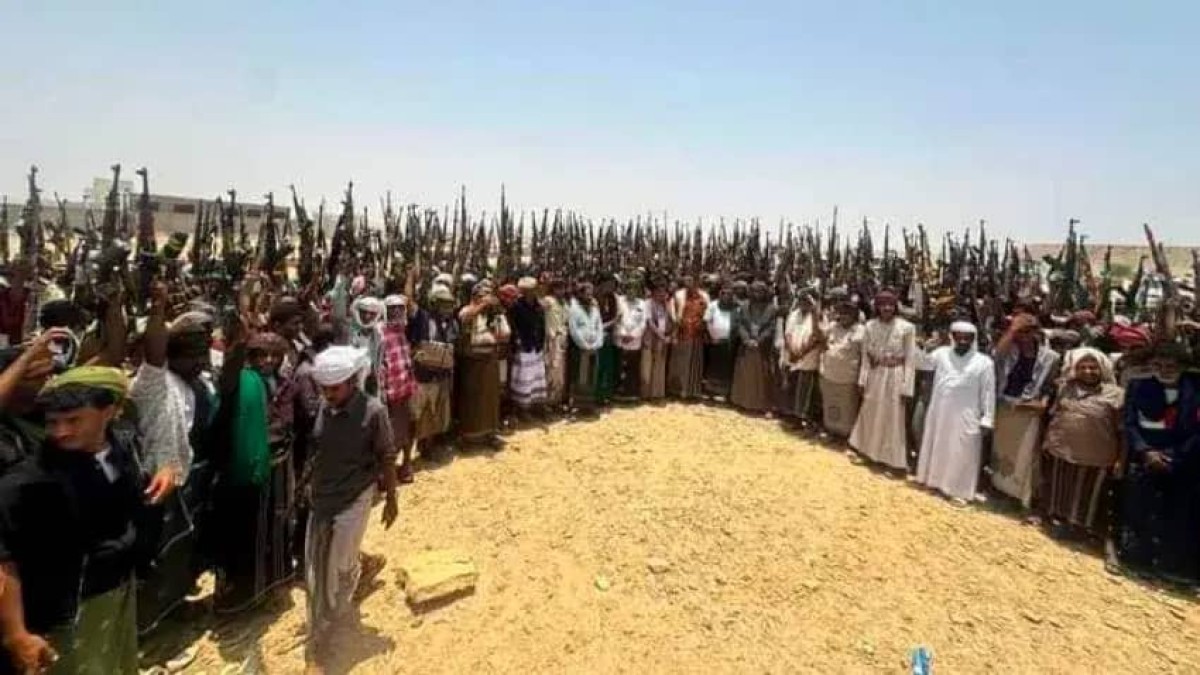“Tribal movement” in Hadhramaut.. A demanding protest or a window for Houthi access?


The Yemeni governorate of Hadhramaut, with its strategic location and oil reservoir, has become within the reach of the ambitions of the Houthi militias.
A "tribal movement" that has been taking place in the governorate for about two months has increased fears of the Houthis entering the governorate through the window of demanding protests.
The governorate is experiencing an escalation led by a tribal entity raising the banner of fulfilling the demands of the people of the governorate, which has an important strategic location for Yemen and the region.
A tribal movement with a demanding nature
At the beginning of last August, the “Hadhramaut tribes” alliance, led by the governor’s agent, Omar bin Habrish, and with hundreds of armed men, began an escalation against the local authority and the leadership council, threatening a “situation... "Hand on land and wealth," then they began setting up armed points near companies and oil sites in Hadramaut.
In an attempt to contain this escalation, the head of the Presidential Leadership Council, Rashad Al-Alimi, announced the formation of a presidential committee to consider “the demands of the people of Hadramaut Governorate,” and on September 17, the council held a meeting devoted to discussing the situation in the governorate.
The Leadership Council confirmed its full understanding of the demanding rights of the people of Hadhramaut, which is the same position expressed by the local authorities. However, the Council did not neglect to warn against exploiting the demands raised by the tribal alliance, which revolve around “partnership in political decision-making and oil wealth.”
Hadhramaut, with its distinctive geographical location and being an oil reservoir, remained the subject of the ambitions of external and local powers, led by the Houthi militias, which view the governorate as a decisive card to achieve their project of controlling the south and Yemen in general.
The importance of Hadhramaut
For the Houthi militias, the governorate constitutes one of the main smuggling lines for Iranian weapons, whether coming through the ports associated with Al-Mahra Governorate or coming by sea, according to the report issued by the Platform for Tracking Organized Crime and Money Laundering in Yemen (P.T.O.C), at the beginning of the month. Current, about arms smuggling to the Houthi militias.
According to the report, as soon as a shipment of weapons reaches the Yemeni shores, it is transported to nearby secret warehouses, after which the process of smuggling them overland in batches, on trucks and vehicles transporting commercial goods, begins, all the way to the Houthi-controlled areas in Sanaa and Saada.
The importance that Hadramaut is gaining in the eyes of the Houthi militias raises fears of plans to penetrate it and exploit any window to achieve this, including the “tribal movement” that the governorate is currently witnessing, especially after the official authorities recently revealed attempts to recruit the people of the governorate by the militias.
p>
The Ministry of Interior announced in mid-August the arrest of 13 young men in Wadi Hadhramaut, residents of the region, who were on their way to areas controlled by the Houthi militias for the purpose of recruitment, training, and distribution after their return in the governorate as sleeper cells.
Concern about penetration
Political analyst Saeed Bakran confirmed that the state of instability in Hadramaut constitutes a great opportunity for the Houthi group to obtain political gains.
Bakran believes, in his interview with Al-Ain News, that the tribal movements in Hadhramaut, which adopt declared service and administrative demands, are today vulnerable to infiltration by regional parties known to be close to the Houthis, shifting their course to demands for a monopoly on Hadhramaut’s political representation. This is a dangerous matter and creates Sustained complexity and endemic division.
Bakran does not rule out that the Houthis and their allies will be able to develop this exploitation later, as it seems, and push in the direction that the tribal movement does not reach any understanding with the Leadership Council.